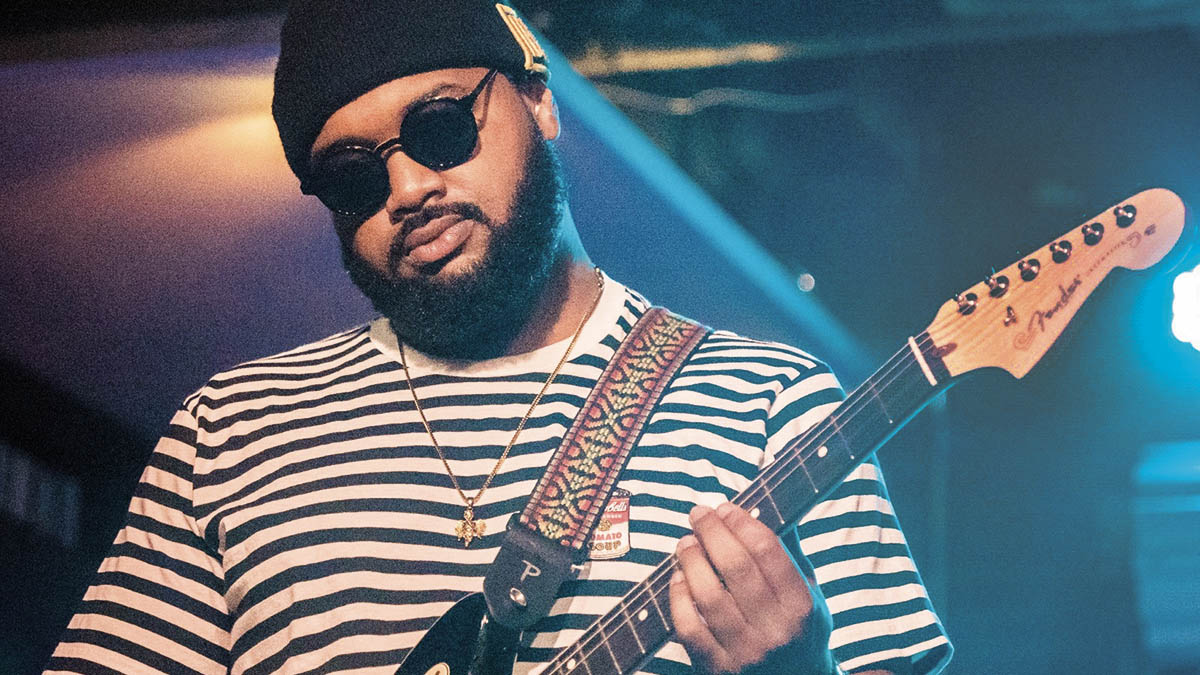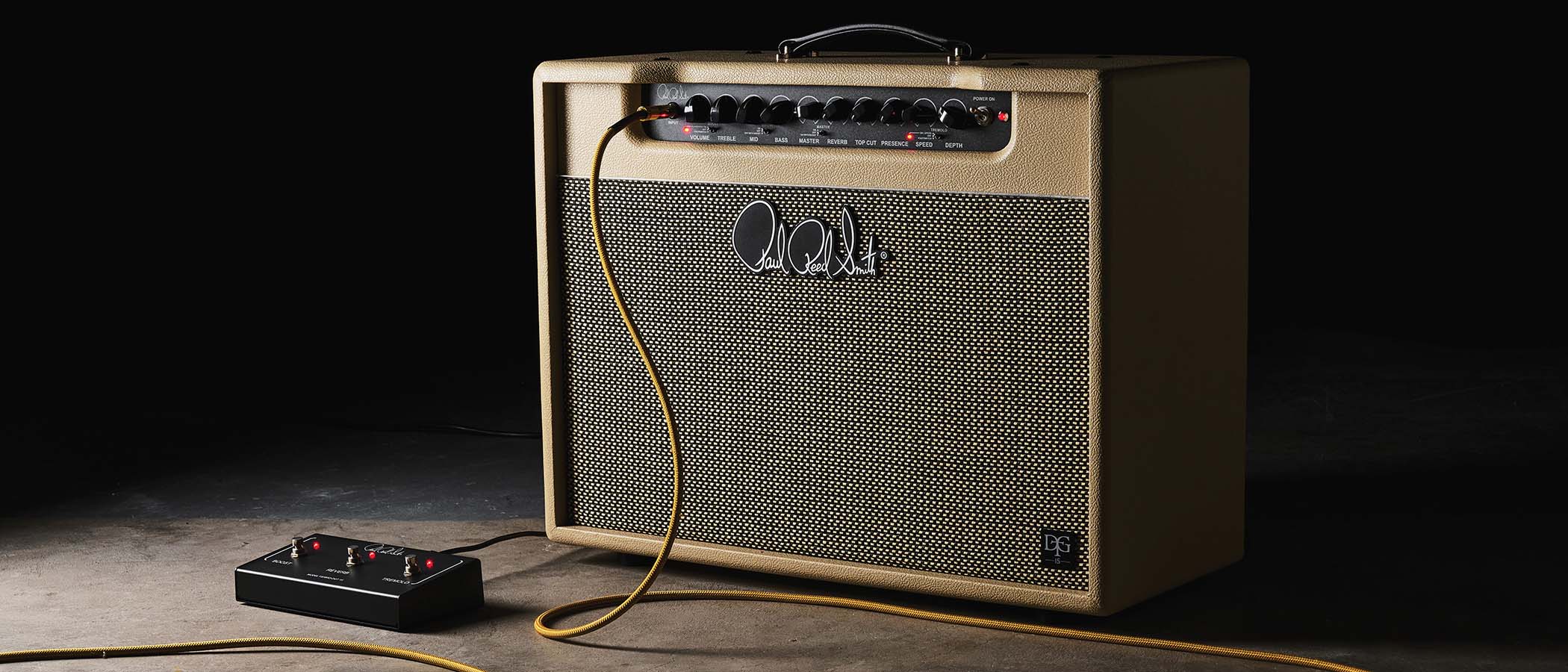Learn the rhythm and lead styles of neo-soul virtuoso Jairus Mozee
The multi-Grammy award-winning guitarist has worked with the likes of Prince and Anderson .Paak, and his style blends alternate picking with hybrid and sweep picking

All the latest guitar news, interviews, lessons, reviews, deals and more, direct to your inbox!
You are now subscribed
Your newsletter sign-up was successful
Jairus Mozee is a multi-instrumentalist, composer and producer who has been awarded no fewer than three Grammy awards for his work. He has played for and worked with some of the biggest names in today’s music, including Anderson .Paak, Christina Aguilera and the mighty Prince among many, many others. Looking through Jairus’s credits, it’s immediately obvious how in-demand he is.
As with many neo-soul guitarists, Jairus started his musical journey playing guitar in his local church. His virtuosity was noticed at a young age, leading to him playing with musicians much older. At the age of 15, Jairus was playing guitar professionally and doing sessions for B2K. A couple of years later, at just 17, he was playing for Prince and spent five months in his house band.
Now, Prince didn’t employ just anyone, and obviously saw the huge talent and potential in the Young Jairus. It was through this gig and getting to play with powerhouse rhythm sections that included bassist Larry Graham and drummer John Blackwell, which led to him becoming so sought-after.
It also helped him hone his skills as a composer and producer. The following years saw Jairus play guitar with one of his idols, the multi-talented Raphael Saadiq, and also work as a guitarist, bassist, composer and producer for rapper Anderson .Paak.
As a guitarist, Jairus Mozee has the chops and knowledge of some of the genre’s best. Like his contemporaries, he is able to play rapid-fire lead lines, funky single-note grooves and is a master of intricate chords and gospel harmony. All of these facets are the reason why Jairus Mozee is hot property on the modern music scene.
From a technical standpoint, Mozee uses a combination of pick style playing and a hybrid approach. Although he tends to favour alternate picking he is adept in both hybrid and sweep picking techniques. In fact he’s a master of the fretboard and is able to effortlessly moved chord voicings up and down the neck, often fused with melodic, and at times speedy lead lines.
The examples here are based around an Em7 to Am7 chord progression, while the study piece is a static E Dorian groove. Hopefully you will see why the legendary Purple One hired the young Jairus and helped kickstart his career.
All the latest guitar news, interviews, lessons, reviews, deals and more, direct to your inbox!
Get the tone
Amp settings: Gain 4, Bass 4, Middle 5, Treble 6, Reverb 4
Jairus is usually seen playing Fender Stratocaster or Jazzmaster guitars, usually favouring the neck pickup. His tone is often clean with some reverb and maybe a touch of light delay. So a cleanish tone with some reverb is the best place to start. The neck pickup of any guitar would be ideal, but both pickups or an ‘in-between’ sound can be great, too.
Examples
EXAMPLE 1 This example shows how Jairus Mozee uses chord inversions mixed with melodic lines to create an interesting gospel-esque approach to playing over a simple chord progression of Em7 to Am7. Using inversions in your own rhythm playing can make your parts much more interesting.
EXAMPLE 2 follows on from the first with two bars of single-note lines over the Em7 chord before using diatonic chords over the Am7. The lowest note in each chord is the 5th and the root note isn’t present. This is a classic gospel guitar line and one you’d be well worth experimenting with.
EXAMPLE 3 Mozee is an extremely funky player and this shows how he might play syncopated chords with ghost notes to get in the groove. Ensure that the ghost notes are properly muted (using whatever fingers or flesh is available), and that the chords sound tight and in sync with the backing.
EXAMPLE 4 This example demonstrates how Jairus might solo over the chord progression. The first lick uses a combination of the E Natural Minor and E Harmonic Minor scales and every note is picked. The lines played over the Am7 chord use the A Minor Pentatonic scale.
EXAMPLE 5 Jairus uses chromaticism to great affect. The opening line uses a simple E Minor Pentatonic lick which travels up the next in semitones. The second part of this example features a series of double stops using notes from the A Minor Pentatonic scale.
Study Piece
The first couple of bars feature some ascending and descending triads on the top three strings. These show chord extensions can be used to add colour.
[Bars 3-11] A funky motif using palm-muted single notes and syncopated chords showcases the funkier side of Jairus’s playing. The Em6 chord gives this piece an E Dorian (E-F#-G-A-B-C#-D) tonality and ghost notes are played in between some of the chords to add an extra sense of groove. Keep your picking hand nice and loose when playing the chords and try not to rush the beat.
[Bars 12-15] Some double-stop ideas here, alongside another single-note line that doubles the bass guitar. Simple and understated parts like these are perfect when accompanying a vocalist or soloist, as they give space for the melody, while also providing a solid groove.
[Bars 16-19] The solo starts on a high E note before three bars of fast sextuplet runs. Bar 17 uses E Minor Pentatonic with added 9th (F#) while bar 18 is built around a D Major scale shape, implying an E Dorian sound. Bar 19 finishes this section with an E Minor phrase.
[Bars 20-23] A series of double stops shows how Jairus uses rhythmic playing to give his solos a more syncopated sound, complementing the bass and drums.
[Bars 24-27] A series of E Minor triads is used in bar 24, which Jairus would play with either an alternate or sweep picking style; it is worth experimenting with both approaches. A final fast picked line occurs in bar 25 before some neo-soul style ‘flutter’ chords and slurs appear. The final two bars of our study piece concludes with some more triadic ideas. Have fun!
Simon is a graduate of the UK's Academy of Contemporary Music and The Guitar Institute, and holds a Masters degree in music. He teaches, examines and plays everything from rock to jazz.

